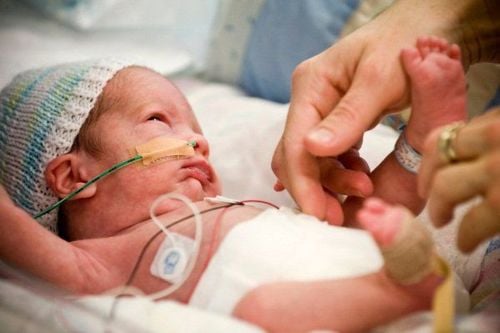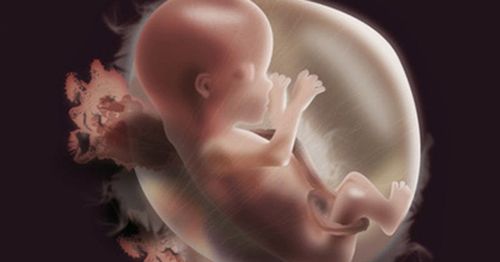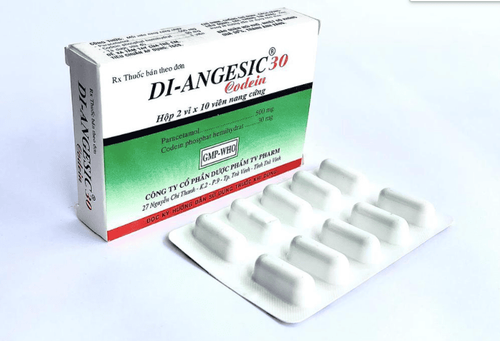This is an automatically translated article.
Article by Doctor Trieu Thi Hong Thai - Department of Neonatology - Vinmec Times City International Hospital.
Meconium aspiration syndrome (MAS) occurs when a child has breathing problems due to aspiration of meconium into the lungs. If not treated promptly, children who inhale meconium can experience many dangerous complications.
1. What is meconium?
Meconium is a baby's faeces at birth, It's thick, sticky, dark green moss. They are made up of cells, proteins, and intestinal secretions such as bile. Newborns often pass meconium in the first hours after birth. However, there are some babies who pass meconium from the time they are in the womb, in the last months of pregnancy. Meconium aspiration rates are common in children after 40 weeks.
2. How dangerous is meconium aspiration syndrome?
Meconium aspiration syndrome (MAS) occurs when a child has breathing problems due to aspiration of meconium into the lungs.
Meconium will make it difficult for children to breathe because:
Blocks the airways and can lead to pneumothorax Lack of oxygen, persistent pulmonary hypertension Infections (almost half of all cases of meconium contain bacteria, especially gram negative, bacterial toxins) Damage to airways and lung parenchyma (cell destruction) Inactivation of surfactant - the inner lining of the alveoli that helps the lungs to expand after birth

Hít phải phân su khiến trẻ khó thở
3. Causes of meconium aspiration syndrome
Meconium aspiration syndrome occurs when the baby is under stress (lack of oxygen, infection) and breathes while still in the uterus and immediately after birth, or when the baby begins to take its first breaths after birth. When breathing, the baby may inhale amniotic fluid mixed with meconium into the lungs
The baby will be at risk of antenatal meconium when:
Long birth and difficult delivery Past due date Mother has health problems: such as gestational diabetes Period, high blood pressure Mother who smokes or uses drugs during pregnancy The child has growth retardation in utero
4. Symptoms of children inhaling meconium
Before birth, the doctor can recognize 1 of the following symptoms:
Amniotic fluid mixed with meconium The baby has meconium tinged on the skin The baby has weak breathing and slow heart rate The child is sedentary

Nước ối có lẫn phân su là một trong những nguyên nhân gây bệnh
5. How is meconium aspiration syndrome diagnosed?
Doctors will diagnose meconium aspiration syndrome if the baby has difficulty breathing after birth, the amniotic fluid is mixed with meconium and no other cause can be found. X-rays are taken to confirm the diagnosis. The doctor will probably do some tests to make sure there isn't another cause of your baby's shortness of breath, such as a heart problem or pneumonia.
6. How is meconium aspiration syndrome treated?
Most children need treatment in the intensive care unit or the intensive care unit (NICU). Children with high oxygen needs but still exerting a lot of effort will need ventilator support. Children with severe meconium aspiration need more treatment such as:
Pumping surfactan to help expand the lungs Maintain blood pressure with vasopressors Use antibiotics and other supportive treatment Inhaling iNO (a gas mixed with oxygen when breathing helps to relax). Pulmonary vessels and increased oxygen exchange capacity) Severe cases: Extracorporeal membrane oxygenation (ECMO). ECMO has a pumping system like a heart pumping blood to exchange oxygen in the artificial lung. The artificial lung takes oxygen and vafthair CO2. The machine then pumps blood back into the patient's body.
Most children who inhale meconium get better in a few days or weeks, depending on how much meconium inhaled.

Trẻ hít phân su được điều trị bằng máy thở
7. Can meconium aspiration syndrome be prevented?
Strict pregnancy control, especially after 37 weeks, doctors can detect pregnancy stress (signs of fetal distress). Early detection, early intervention. If a woman breaks her water and notices a mossy green water, you need to tell your doctor because that is a sign that the amniotic fluid contains meconium.
8. Other things you need to know
Children with severe meconium aspiration are much more saved when new supports ECMO, iNO breathing. However, the active treatment time is long, the recovery is long. and the treatment cost is high.
To register for examination and treatment at Vinmec International General Hospital, you can contact the nationwide Vinmec Health System Hotline, or register online HERE.














